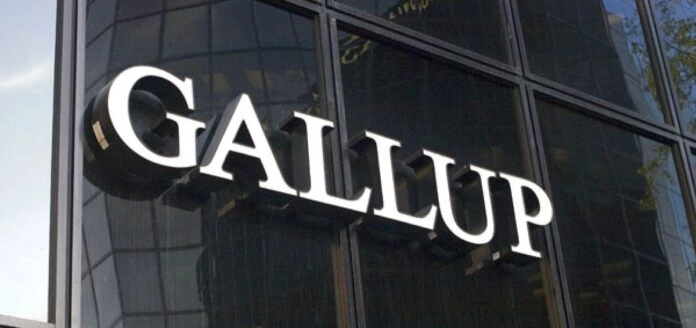Islamabad 14 August: 50 % traders believe country moving in right direction claims Gallup. The “direction of country” score — calculated as the percentage of respondents who think Pakistan is on the right track minus those who think it is headed the wrong way — rose sharply to –2 percent in the second quarter of 2025, up 62 points from –64 percent a year earlier.
Gallup conducted interviews with 524 businesses from the manufacturing, services, and trade sectors between July 23 and 27.
The improvement follows Pakistan’s $7 billion IMF bailout secured in September 2024, along with fiscal and structural reforms aimed at averting default and restoring economic stability.
According to the survey, 46 percent of businessmen rated the Pakistan Muslim League-Nawaz (PML-N) government’s economic management as better than its predecessor, the Pakistan Tehreek-e-Insaf (PTI) — a notable rise from 24 percent last year.
While sentiment remains marginally negative, Gallup noted it is at its highest since the fourth quarter of 2021, suggesting a moderate easing of uncertainty for businesses.
READ MORE: Bilal Gilani Joins Gallup International Association as Board Member
Key findings from the Gallup Pakistan survey:
- 61% rated ongoing operations as “good” or “very good,” up six percentage points from the previous wave.
- Manufacturing showed slower recovery compared to trade and services.
- Top concerns: Inflation (28%), high utility costs (18%), and taxes (11%).
- Inflation rose to 4.1% year-on-year in July, from 3.2% in June, driven by higher food, fuel, and medicine prices.
- Bribery reports fell to 15% in Q2 2025, from 34% in Q4 2024 — highest in trade (20%), followed by services (13%) and manufacturing (12%).
Gallup Pakistan Executive Director Bilal Ijaz Gilani described the results as a reflection of a “cautiously improving mood” among the business community, noting that long-term stability will depend on sustained reforms, policy consistency, and institutional responsiveness.
Analysts warn that Pakistan’s long-term growth in the $375 billion economy will hinge on controlling inflation, reducing the cost of doing business, and maintaining reform momentum.









